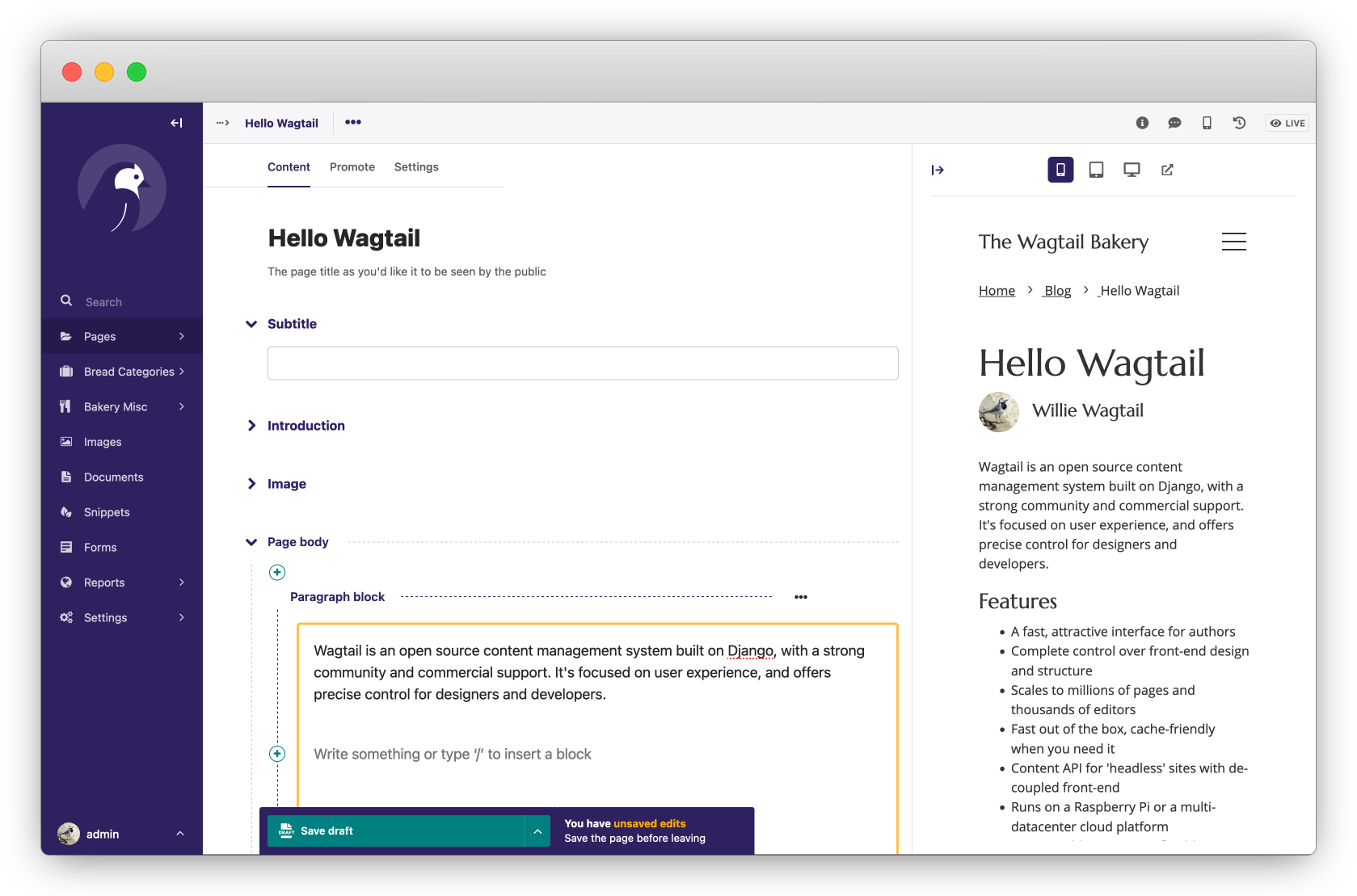Things I've Learned Recently About Wagtail CMS
 Ngezayo Bonheur
Ngezayo Bonheur
Wagtail is a free and open-source content management system (CMS) that's built on Django. It's a great choice for building websites of all sizes, from simple blogs to complex e-commerce sites.
Here are a few of the things I've learned about Wagtail recently:
- Wagtail is very flexible and extensible. You can use it to build any type of website you can imagine. For example, you can use Wagtail to build a blog, a portfolio site, a corporate website, an e-commerce site, or even a social networking site.
Wagtail is very user-friendly. The admin interface is clean and easy to navigate. Even if you're not a developer, you can easily use Wagtail to create and manage your website's content.
- Wagtail has a large and active community. There are many resources available to help you get started and learn more about the platform. There are also many Wagtail modules and plugins available that you can use to add new features and functionality to your website.
Here are a few specific things I've been learning about Wagtail:
How to use Wagtail's built-in features to create pages, blog posts, images, and other content. Wagtail has a number of built-in features that make it easy to create and manage your website's content. For example, you can use Wagtail to create pages with different types of content, such as text, images, videos, and embeds. You can also use Wagtail to create blog posts with tags, categories, and comments.
How to create custom Wagtail models and templates. Wagtail allows you to create custom models and templates to extend the functionality of your website. For example, you can create a custom model to store product data for an e-commerce site. Or, you can create a custom template to display your website's footer in a specific way.
How to use Wagtail's powerful search and filtering features. Wagtail has a powerful search and filtering engine that you can use to easily find the content you need. For example, you can search for pages by title, tags, or categories. You can also filter pages by date, author, or status.
How to deploy Wagtail applications to production. Once you've built your Wagtail website, you need to deploy it to production so that it can be accessed by visitors. Wagtail makes it easy to deploy your website to a variety of hosting providers, such as Heroku, AWS, and Azure.
Wagtail is a powerful and versatile CMS that makes it easy to build beautiful and functional websites. If you're looking for a CMS that is flexible, user-friendly, and has a large community, then I highly recommend checking out Wagtail.
Subscribe to my newsletter
Read articles from Ngezayo Bonheur directly inside your inbox. Subscribe to the newsletter, and don't miss out.
Written by
